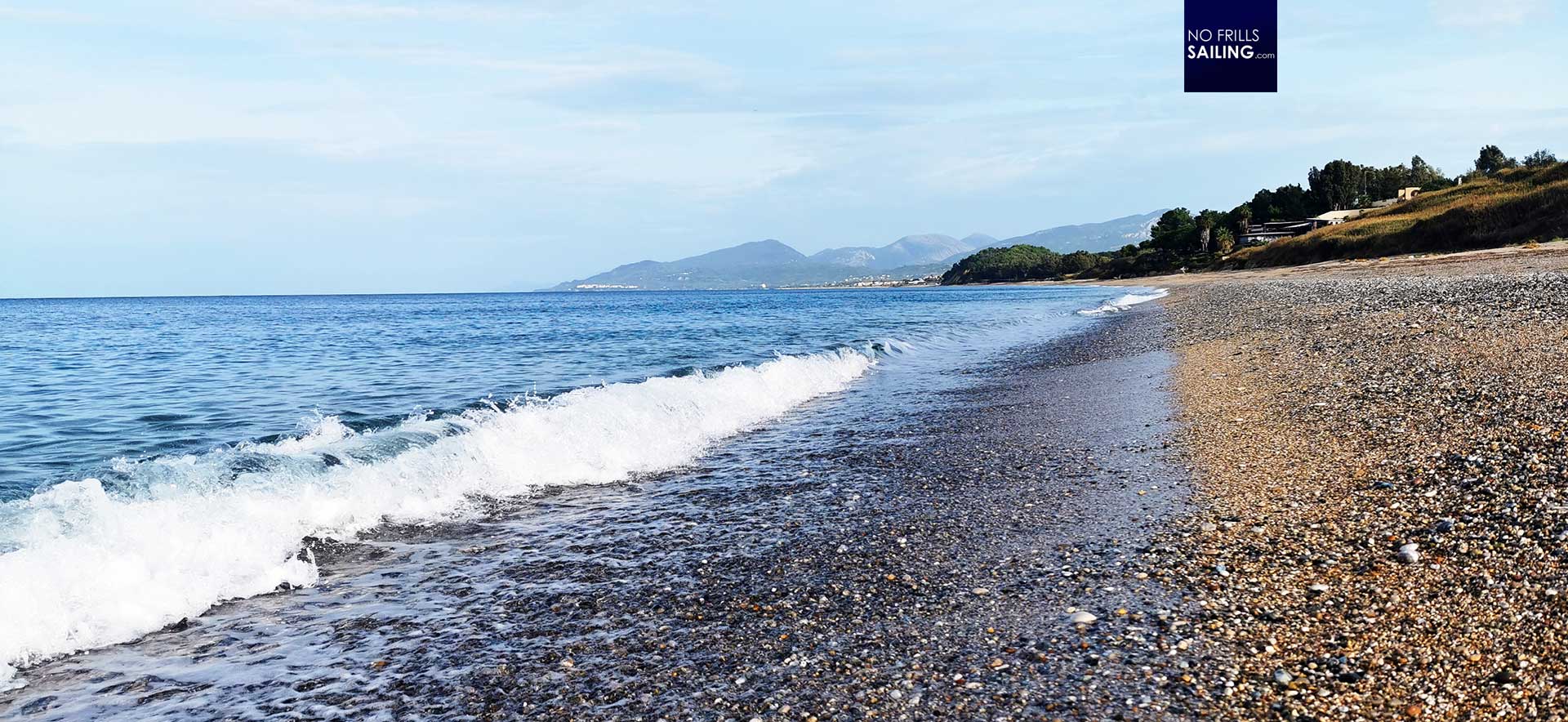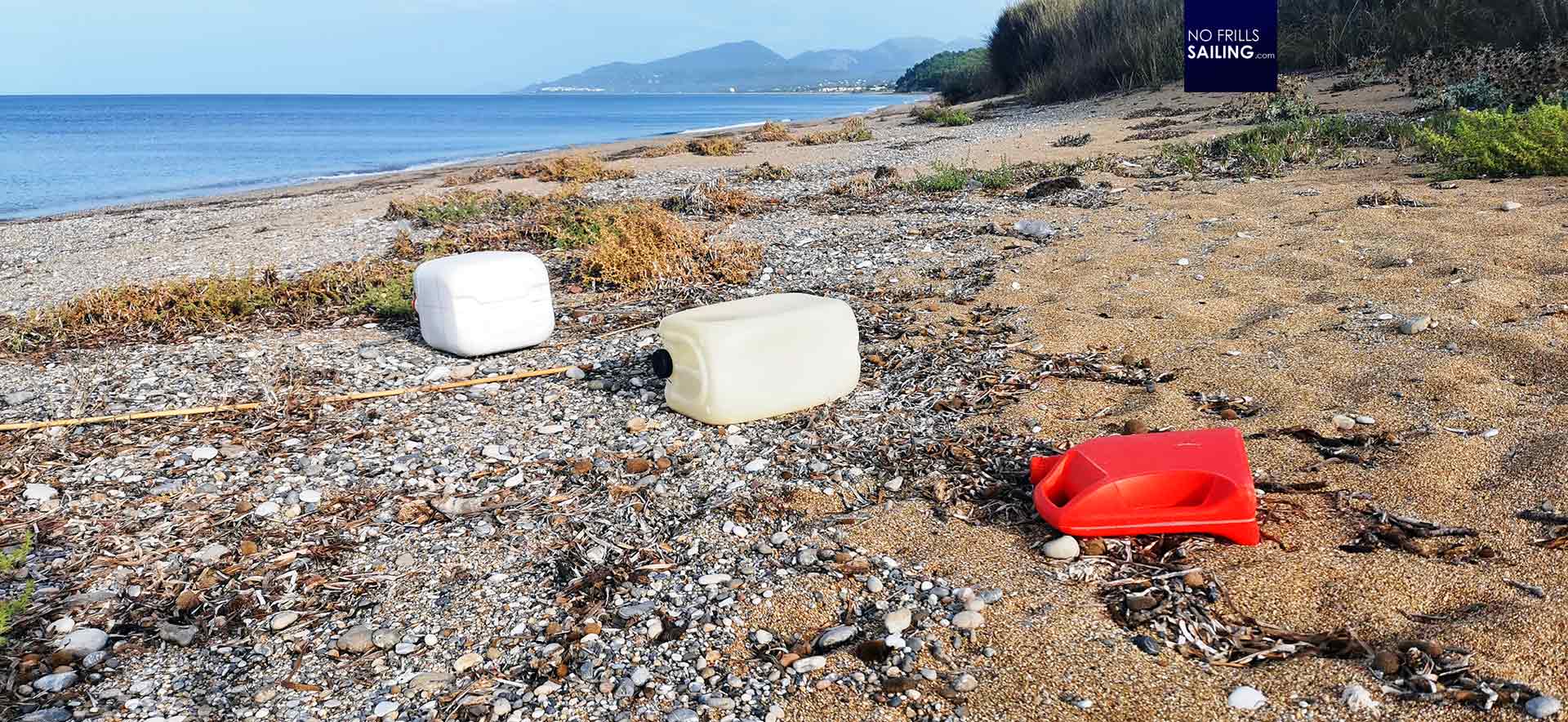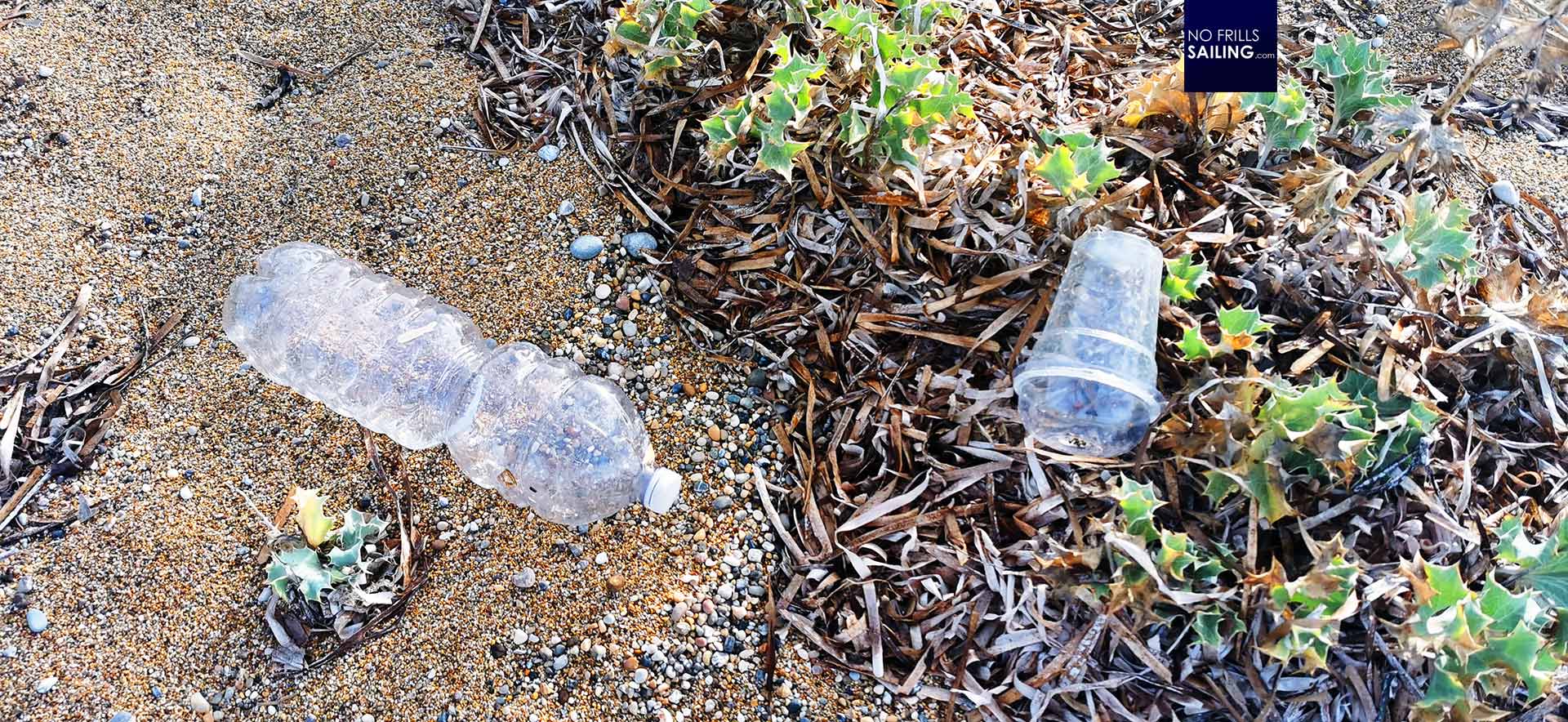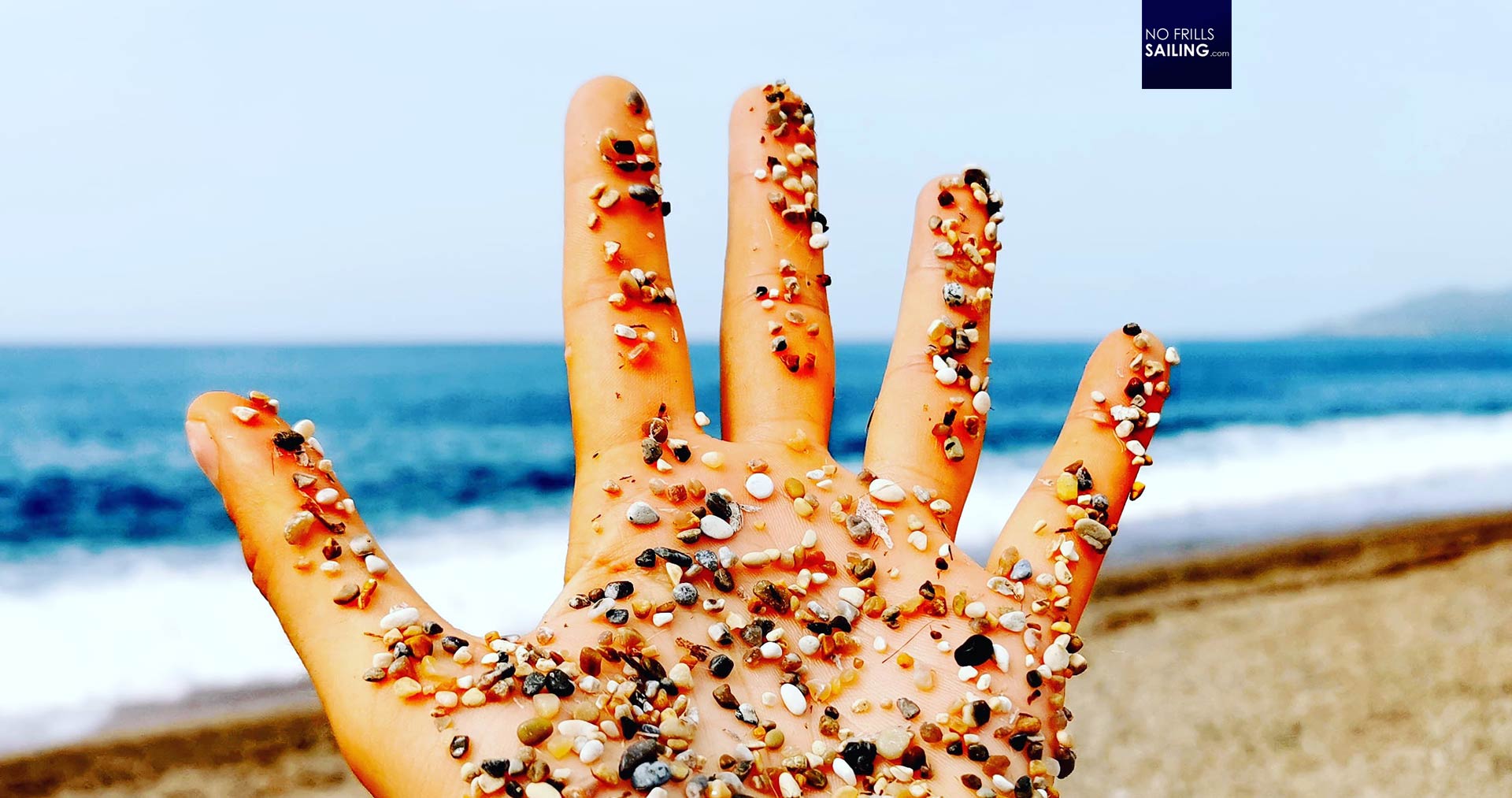I am currently on our annual family´s vacation. Normally that would be the Canary Islands because the kids love this archipelago, due to Covid 19 travel is restricted to Spain so we decided to go to Greece. Walking with the boys in the early morning hours along the beach (mom is still enjoying a long sleep) it´s this quiet, lush moments I utilize to watch my kids having fun in the sand – and contemplate. On the first view the beach is a marvel. Monolithi Beach, just south of the Island of Korfu, is a 22 kilometre long awesome beach. A dream come true. A dream? Or is it a nightmare?

It´s my kids who really open my eyes: The ask me, why “nobody takes away the garbage” here. I begin to see what I might have ignored before. And I start to really look at what´s around us. All along the shore – plastic. Everywhere I put my eyes it´s white, yellow, red plastic. Caps. Coffee-cups. Water bottles and canisters. Styrofoam. Foil. Aluminium cans. Waste everywhere. It´s a mess. It truly is. Sad as it is, I try to use the situation to make my kids learn something from it. I explain that reckless people, maybe also poor people who can´t afford, dispose of their garbage in the ocean: “It is estimated that every minute one truck load of plastic waste is dumped into the world´s oceans.”, writes Fabienne McLellan from Ocean Care. I sailed with these guys last year during a regatta, in occasion of the situation seen in Greece I send her whatsapp-messages: I want to know more.

My kids are sad: Why would somebody throw the waste into this wonderful blue ocean? “5 to 13 million tons of plastic garbage per year will be put into the oceans”, writes Fabienne: “That is more than the live weight of all blue whales.” Every year. Which means, that right now there is much, much more plastic in the ocean than whales. “In the year 2050 the weight of the waste dumped into our oceans will surpass the live weight of all fish living in them.” And it´s even worse: Due to the work of waves and mechanical abrasion, the large chunks of plastics will be grinded and break down to smaller pieces: From macro plastics to micro plastics. Those smaller and smallest parts of waste are mistaken for Krill and other seafood and be eaten by fish: That is how it starts, the plastic waste – maybe toxic – will enter the food chain. And we will eventually be eating our own garbage at last. I tell my kids. They hear what I´m saying, but it is so illogical that they can´t understand: Why would we be doing this?

Every morning we walk by the beach. The sun rises. It´s a perfect family holiday. Greece is a welcoming country full of beautiful, friendly and helpful people. A country that can be proud of a rich history. But also a country where I can witness how devastating our current economical and political system is. How bad naked capitalism, austerity policy and corruption are. Public services, such as waste management, but also public consciousness, awareness for nature, are vanishing. This wonderful country – along with so many more – is suffocating in garbage. While the Mediterranean is one of the most polluted oceans on Earth. How could we stop this? Next day I take three large waste bags down to the beach and we collect garbage. I know it won´t change anything. Won´t it? My kids learn how much of this stuff is laying around – and get a feeling for their own behaviour. Maybe these “Ocean Clean Up” movements can do something – but in the depth of my heart I know that the whole way of our living, of our society and of our economic system has to be changed.

While the Mediterranean covers just 1 per cent of the world´s oceanic area, it houses up to 18 per cent of the Earth´s oceanic creatures. Fabienne writes that while the five big garbage patches of the Pacific and Atlantic Oceans are well known, a sixth one has now formed: It´s the Mediterranean Garbage Patch. We truly are – stupid people! I don´t know if we can save this world. But I do know that at least my kids have learned something from it. Sad as it is. Instead of Dolphins and Turtles, rich marine life and fascinating nature, they´ve seen man´s worst side. Light and dark, so close together.
You may also be interested to browse the website of Ocean Care
